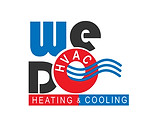Enhancing Health and Comfort: Exploring the Benefits of an Indoor Air Quality System in Los Angeles
- info274311

- May 25, 2023
- 3 min read
In the hustle and bustle of everyday life, we often overlook the air quality we breathe indoors. However, the importance of indoor air quality (IAQ) cannot be underestimated. Poor air quality can lead to various health issues, discomfort, and reduced productivity. That's where an indoor air quality system comes into play. This article will delve into the numerous benefits of installing an IAQ system in your home or office in Los Angeles and San Diego, California. An IAQ system can make a significant difference in your living or working environment, from improved respiratory health to enhanced comfort and energy efficiency.
Healthier Indoor Environment:
One of the primary benefits of an indoor air quality system is the improvement of the overall health of occupants. IAQ systems effectively remove harmful pollutants, allergens, and irritants from the air, reducing the risk of respiratory issues such as asthma, allergies, and respiratory infections. This is especially crucial for individuals with pre-existing respiratory conditions, young children, and the elderly
Cleaner and Fresher Air:
An IAQ system incorporates advanced filtration technologies, such as HEPA (High-Efficiency Particulate Air) filters, to capture and remove particles, dust, pet dander, pollen, and other airborne contaminants. Doing so helps maintain a clean and fresh indoor environment, free from pollutants that can trigger allergies and cause respiratory discomfort.
Odor and VOC Reduction:
Indoor air quality systems equipped with activated carbon filters can effectively eliminate unpleasant odors, volatile organic compounds (VOCs), and harmful chemicals from the air. This is particularly beneficial in urban areas like Los Angeles and San Diego, where outdoor pollutants and indoor sources like cleaning products, paints, and furniture can contribute to poor air quality.
Enhanced Energy Efficiency:
An often overlooked benefit of an IAQ system is its impact on energy efficiency. Improving air circulation and filtration allows HVAC systems to operate more efficiently, reducing energy consumption and potentially lowering utility bills. This is particularly important in cities like Los Angeles and San Diego, where air conditioning is frequently used to combat the heat.
Increased Comfort and Productivity:
Clean and fresh air plays a vital role in creating a comfortable and conducive environment for both residential and commercial spaces. An IAQ system helps maintain optimal humidity levels and removes airborne particles that can cause discomfort and distraction. As a result, occupants experience improved focus, productivity, and overall well-being.
Allergy and Asthma Relief:
An IAQ system can provide much-needed relief for individuals suffering from allergies and asthma. It minimizes triggers that can exacerbate symptoms by filtering out allergens like dust mites, pollen, and mold spores. This allows allergy and asthma sufferers to breathe easier and enjoy a higher quality of life.
Protection for HVAC System:
An IAQ system can also contribute to the longevity and efficiency of your HVAC system. By capturing and removing airborne particles, it prevents them from accumulating on HVAC components, such as coils and filters, reducing the risk of system malfunctions and extending its lifespan.
Peace of Mind:
Installing an indoor air quality system offers peace of mind, knowing that you provide a healthier and safer environment for yourself, your family, or your employees. It demonstrates your commitment to their well-being and creates a space where everyone can thrive.
Conclusion:
Investing in an indoor air quality system is a decision that brings numerous benefits to your home or workplace in Los Angeles and San Diego. The advantages are substantial, from improved health and comfort to increased energy efficiency and protection for your HVAC system. WeDo HVAC is a trusted provider of IAQ.





Comments